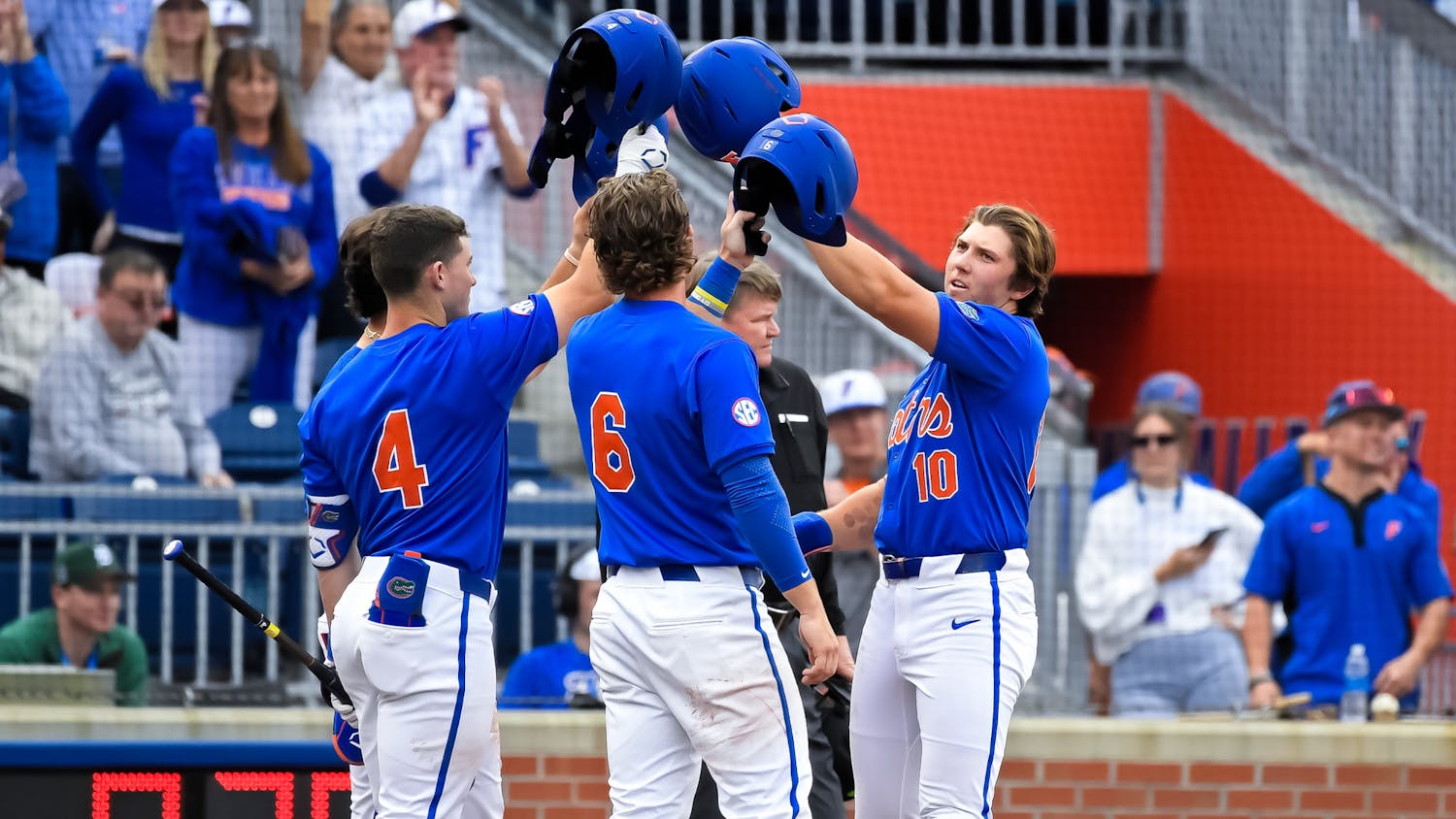A few weeks ago, a mobile exhibition called "America's Farmers" visited UF and parked on the North Lawn. With a mission to celebrate American family farmers, the exhibition offered a pamphlet, a short tour and a video of the lives of these rural Americans.
Curious (and skeptical), I looked into the campaign.
America's Farmers is sponsored by Monsanto, the world's largest agricultural biotechnology corporation. It makes herbicides, pesticides and genetically engineered seeds that produce unnaturally abundant and tasteless crops. Many of these products are only effective and compatible with other Monsanto products. That is, Monsanto seeds require specific Monsanto fertilizer.
The list of Monsanto's legal issues is as disturbing as it is expansive. The organization has been sued for the adverse side effects of Agent Orange during the Vietnam War, for the questionable safety of saccharin (the carcinogenic compound that makes most of your "zero calorie" drinks taste so sweet) and, most recently, it has been found guilty of chemical poisoning in France.
To offer a point of reference: If you've seen the movie "Michael Clayton" with George Clooney, the company he's investigating for misconduct, "U/North", is based on Monsanto.
In the real world, Monsanto is careful to exclude what many consider accurate warnings and health-safety claims from its product labels. The company claims that, when used properly, its products (remember, we're talking about insect and plant poisons) are safe for human handling and, eventually, consumption.
Yet, a French farmer who experienced memory loss, stammering and headaches since he inhaled a Monsanto weed killer in 2004 would strongly disagree.
Despite the shocking number of Monsanto court cases, the company often emerges with little more than lawyer fees, as plaintiffs have been unable to clearly show the relation between the illness and the side effects of the pesticides.
Within this discourse, as in the discourse of all controversial issues, is the question of the advocates of the company within consideration.
My worry is whether or not UF and its administrators see themselves as ethically accountable for hosting or inviting a company with such questionable tactics to feature its exhibition (and feature its brand) in the middle of campus?
Excuses of "We support ‘America's Farmers,' not Monsanto" are as shallow as they are baseless. If you want to support farmers (local farmers, not monocultural mega-farmers) visit the farmers market. Invite local farmers to host a market on campus to share Alachua County's large farming population and to sell their reasonably priced, healthy and generally pesticide- and herbicide-free crops to students and faculty.
I don't know the specifics of the agreement between UF and Monsanto to feature the "America's Farmers" exhibit on campus, so I am not entitled to judge the university's actions except at face value. But when Tiger Woods' affairs were revealed, Gatorade cut connections with the golfer, publicly denouncing his misconduct.
Will UF similarly make a public denouncement of Monsanto, a company that has been charged with sharecropping and unethical monopolization and has now been found guilty of chemical poisoning?
It's fair to say that it must.
Dyllan Furness is a philosophy and English junior at UF. His column appears on Tuesdays.





